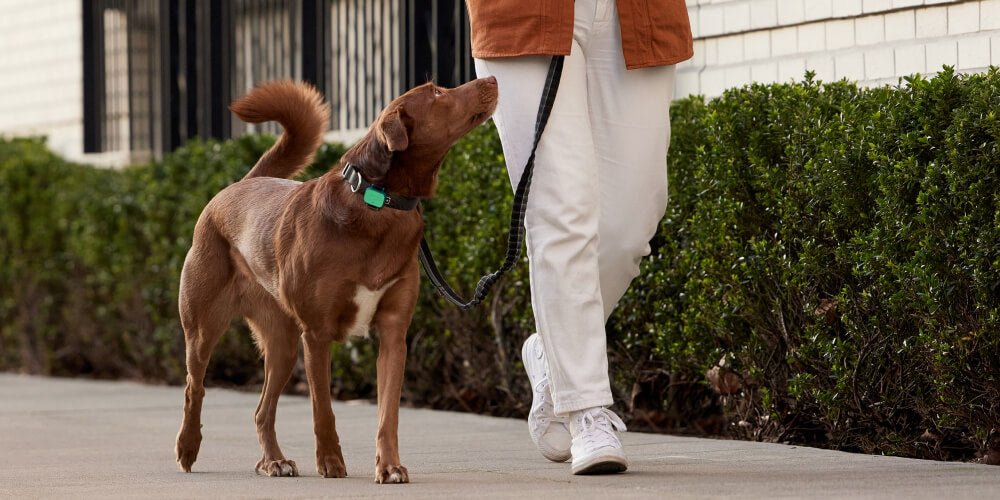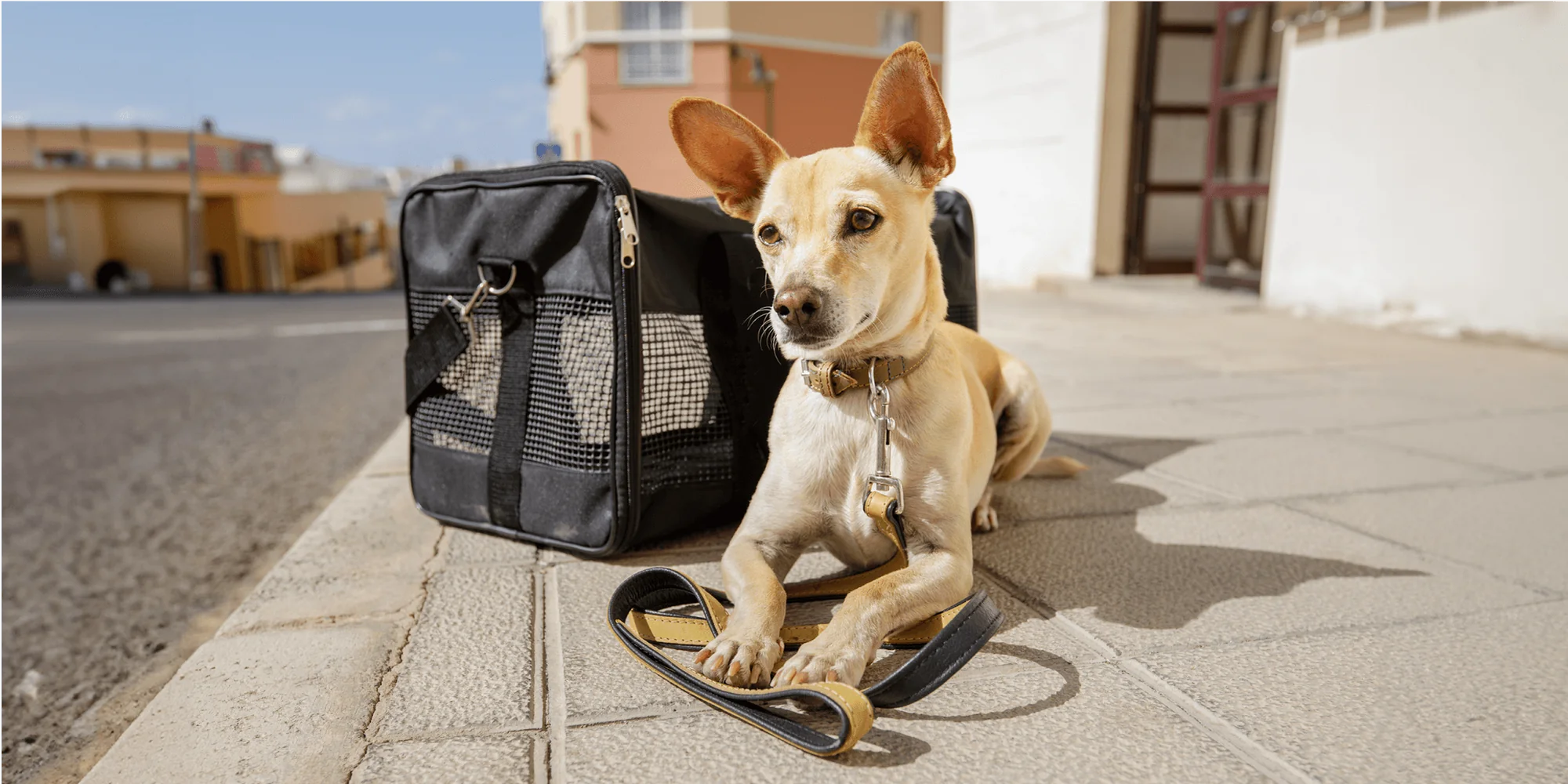National Walk Your Dog Week

Do you have a dog that loves long walks? Grab their leash and hit the road during National Walk Your Dog Week. The annual event, held October 1 to 7, was designed to improve the health and wellbeing of dogs through regular exercise.
What are the benefits of walking your dog?
Whether you leash up your pup for a walk around the block or go off road and explore local trails, there are some doggone big benefits to walking your dog.
Let’s take a look at some of the reasons why you should get out there and walk—and why it's so important to make sure that all of your dog's needs are met.
Joint health: Without sufficient exercise, dogs can get stiff joints. Walking keeps those joints moving and that improves their function. Even senior dogs benefit from short walks to improve their joint health. Remember, Whistle Health, Health & GPS or Health & GPS+ monitor behaviors like licking, which could be a sign of painful joints.
Weight control: Overweight and obese dogs face an increased risk of health issues, including diabetes, heart disease and osteoarthritis. Regular walks can help your dog slim down (or keep their weight in check) and contribute to a longer, healthier life.
Leona discovered that regular walks helped her dog, Cinnamon, keep her weight in check. Whistle Health allows Leona to track Cinnamon’s activity levels to ensure that the senior pup gets sufficient exercise for weight loss.
Mental health: Walks are important for mental stimulation. Your dog benefits from the sights, sounds and scents on their walks. Take new routes and encourage them to stop and sniff. Regular mental stimulation will help tire them out and decrease the odds that they’ll be bored and destructive at home.
Socialization: Your dog will likely encounter other people and animals on your walks. These interactions offer important opportunities for socialization and can help your dog feel confident in new situations.
Quality time: There are few things dogs love more than quality time with their people. A walk is a bonding experience and could help decrease barking, whining and other attention-seeking behaviors.
Stay safe on your walks
You stick to sidewalks and marked trails, obey leash laws and never walk when it’s too hot outside, right? Here are a few other ways to stay safe on your walks:
Use the right gear: A collar with identification tags and a leash are essential for walks but some dogs benefit from additional gear to keep them safe.
A harness is a good option for dogs that pull because it reduces the pressure on their necks and a double leash that attaches to a collar and harness minimizes the risk your dog will break free and get lost. Attach a Whistle Health & GPS or Health & GPS+ device to their collar to provide real time location alerts in can your dog gets loose on a walk.
Pack provisions: Packing a collapsible bowl, clean water and a few snacks can help keep your dog hydrated and fueled up on longer walks. Carrying water also ensures that your dog won’t be sipping from puddles or streams that could harbor harmful bacteria.
Pay attention to cues: Your dog will tell you when they are tired. Watch for excessive panting, slow walking, seeking shade or sitting down on the route, which are signs that it’s time to cut the walk short.














